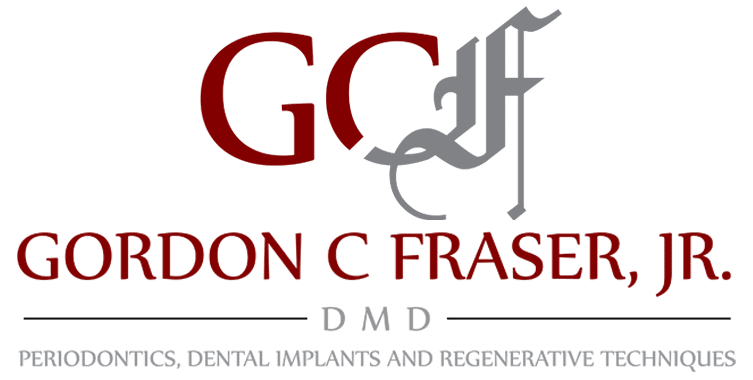
Periodontal (gum) disease is one of the leading causes of tooth loss in adults.
If gum disease is diagnosed and treated in the early stages, the condition can be reversed, and tooth loss can usually be prevented. If you think you may have gum disease, it is important to schedule an appointment right away so that we can use the least invasive method available to correct the problem.
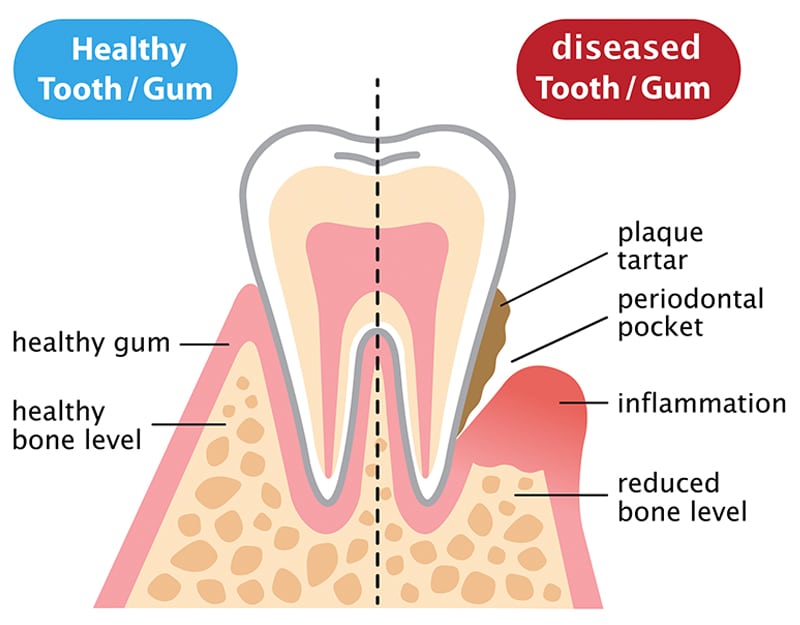
Our doctors will make a recommendation for your treatment after a thorough examination. If gum disease is detected during your dental visit, our doctors will instruct you on steps regarding improved home care and recommend specialized treatment options in our office to eliminate the disease.
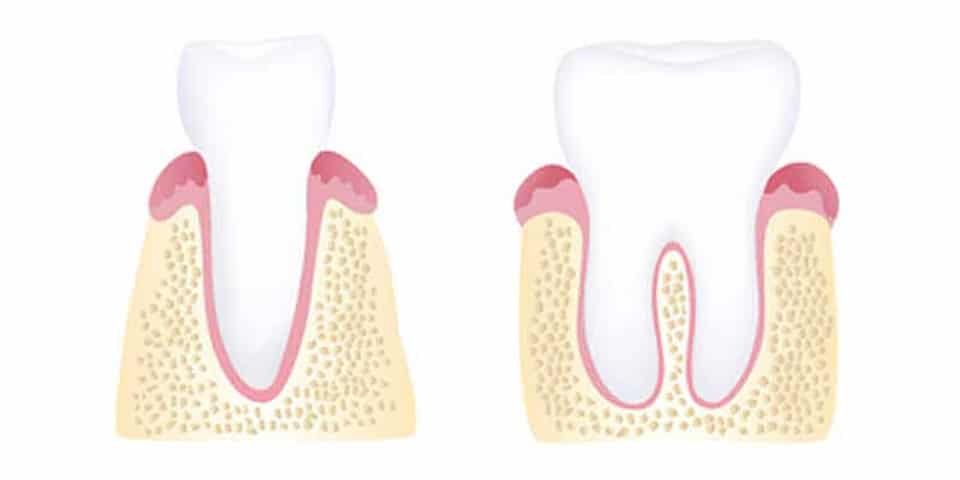
- Brush your teeth with fluoride toothpaste at least twice a day
- Floss your teeth and gums regularly
- Do not smoke or use tobacco products
- Visit the dentist for regular dental cleanings
Onset of Gum Disease
Symptoms of Gingivitis may include:
- Swollen or bleeding gums
- Bad breath or a metallic taste in the mouth
- Receding gums
- Increasing spaces between teeth
- Mild discomfort
It is important to diagnose gum disease in this early stage before it progresses to periodontitis.
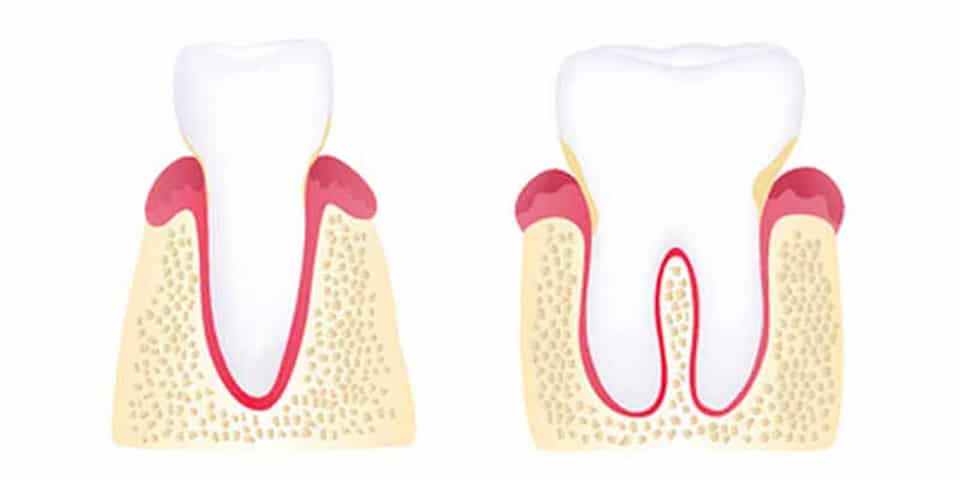
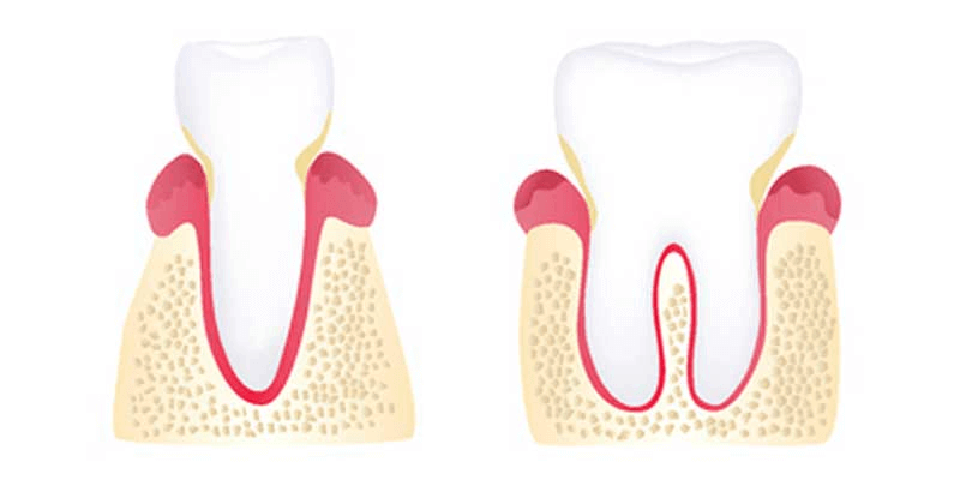
Early Gum Disease
As gum disease progresses, it can lead to a more advanced periodontal disease called periodontitis, which can compromise the bone supporting the teeth.
During Early Periodontitis:
- Increased inflammation in the gums
- Gums begin to pull away from the teeth, creating periodontal "pockets"
- These spaces collect food, plaque, and bacteria that can lead to infection
- Infection damages the surrounding bone
Without regular dental visits, symptoms may not be noticed until moderate periodontitis is present.
Advanced Gum Disease
If left untreated, symptoms of periodontitis may become more severe as inflammation and infection spread, and you may experience more discomfort. In this stage of gum disease, you may lose more bone supporting your teeth, feel your teeth loosen even further, and your gums will continue to recede.
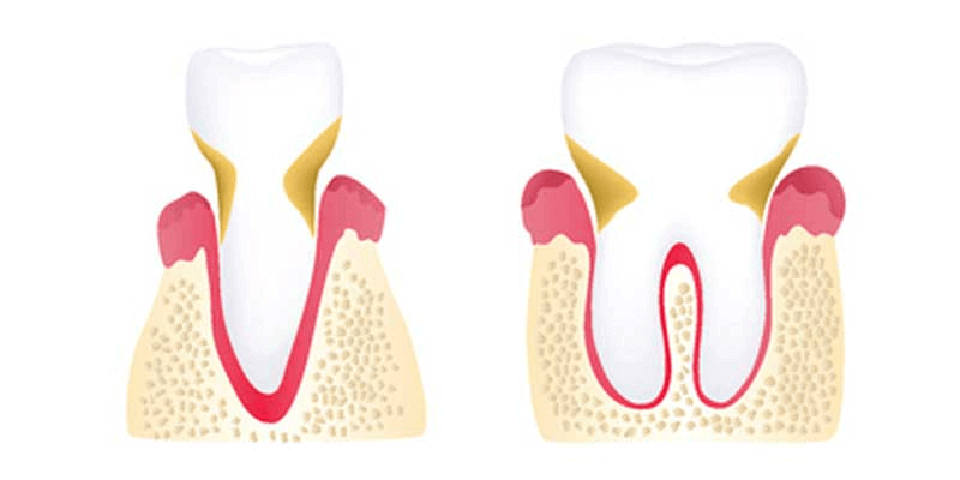
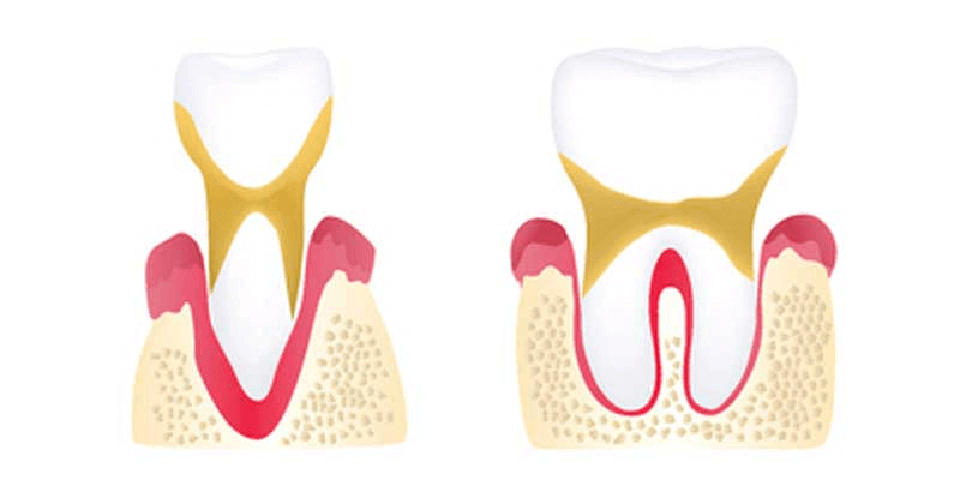
During this advanced stage of periodontal disease, you may experience painful abscesses resulting from the infection spreading beneath the gums. This level of disease will cause your teeth to loosen even further and is a leading cause of tooth loss in adults.
